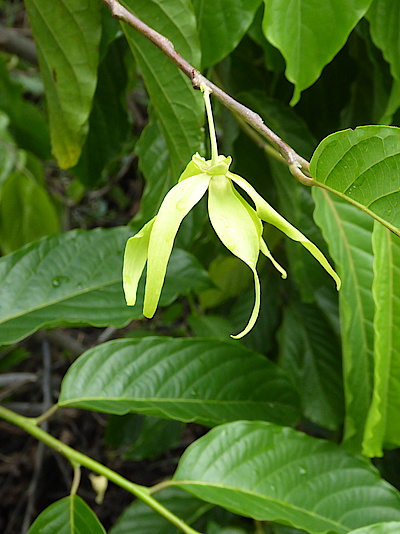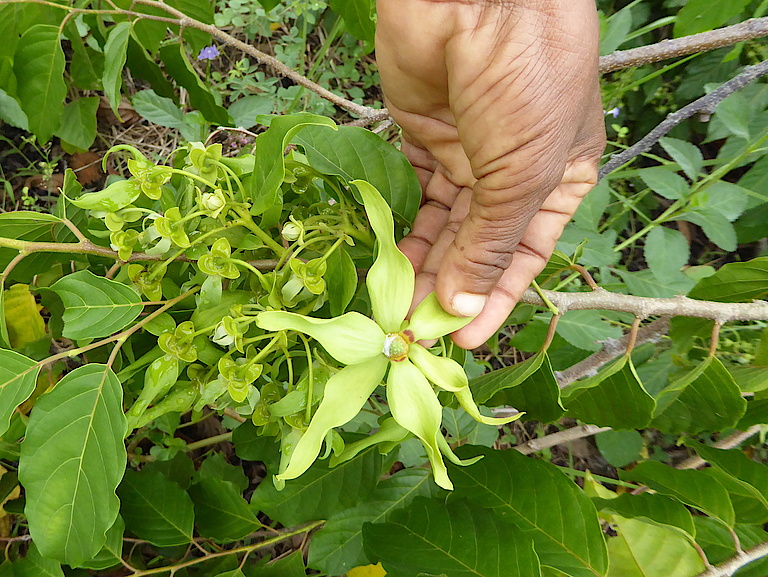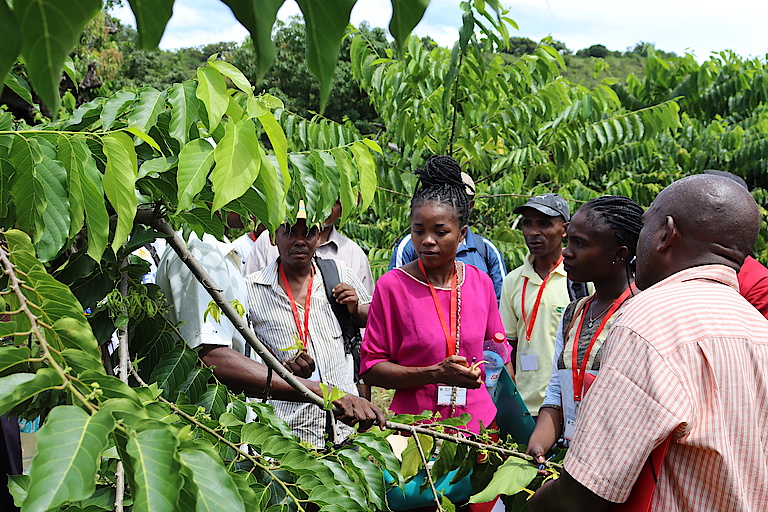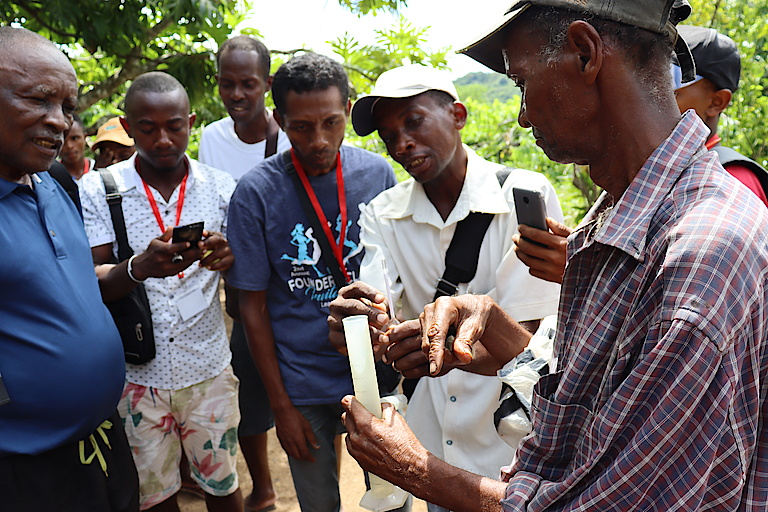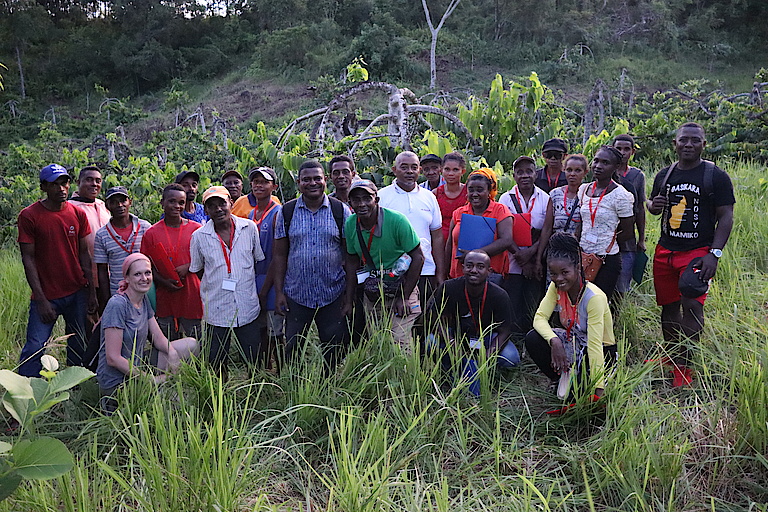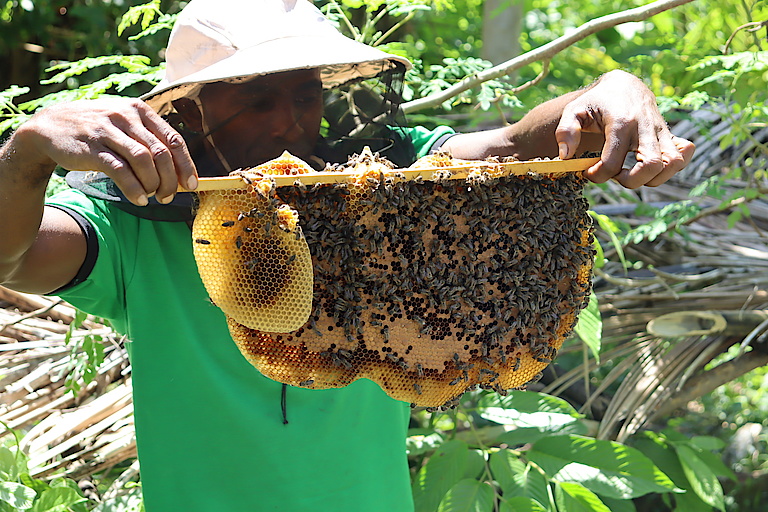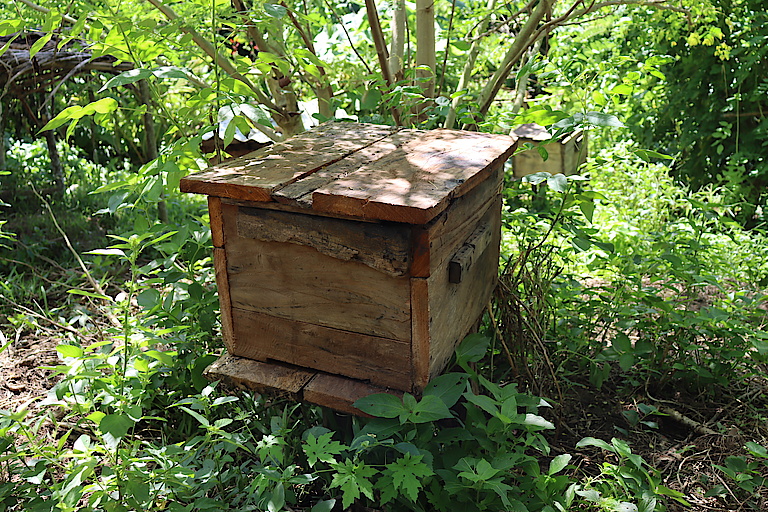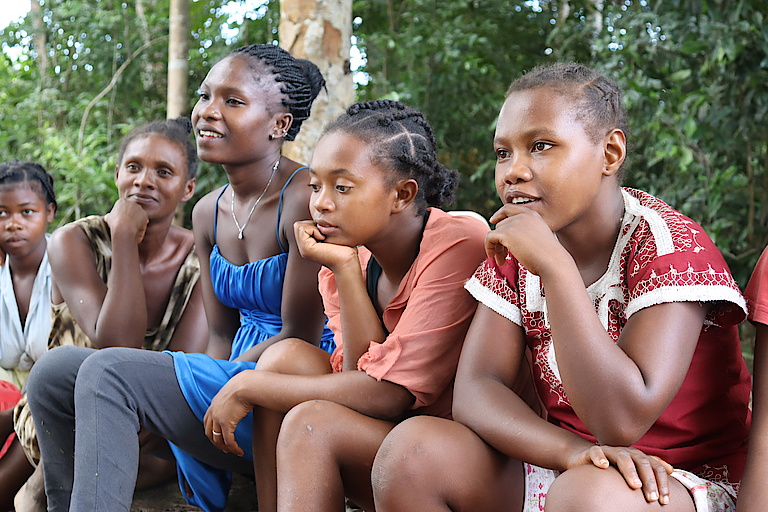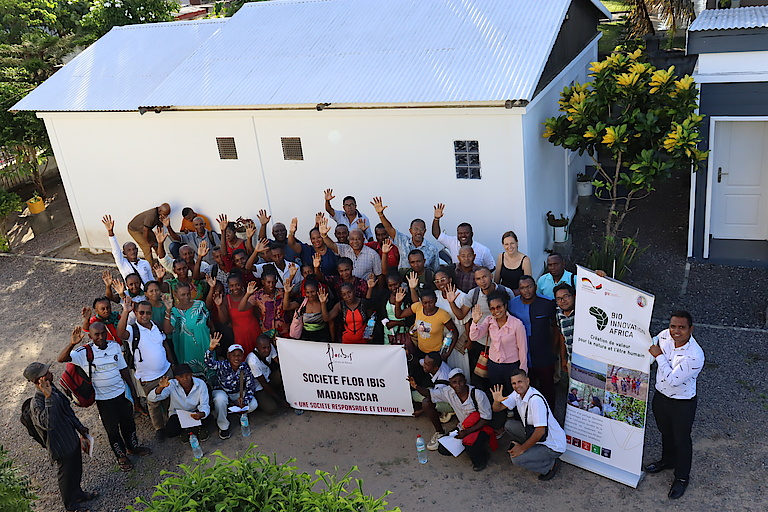Support offered by BioInnovation Africa
Sustainability in supply chains does not only refer to environmental aspects but also social aspects of the supply chain. It is vital to ensure that decent working conditions and safety standards are respected throughout the supply chain. BioInnovation Africa advises companies on how to meet these obligations, e.g. by raising awareness of the living wage concept. In addition, BIA provides support to the formalisation and strengthening of local organisations and cooperatives through organisational support and capacity development on quality and productivity improvements, thereby enhancing the bargaining power of local suppliers. The project activities contribute to ensuring a stable and sustainable supply chain which in return provides a safety net for workers and members of cooperatives.
By creating alternative income-generating activities, such as beekeeping, community members are provided with opportunities to diversify their sources of income and start new businesses.
Partnership example
The rich diversity of flora found on the island of Madagascar is of great interest to many companies. The French-based company V. Mane Fils, which is one of the world leaders in the flavour and fragrance industry, has been sourcing ingredients from Madagascar for many years. One of their local partners is the agro-food company and “artisan perfumer“ Floribis.
The two companies not only work together to build supply chains but are actively engaged in creating environmental, social and economic benefits for the communities they work with. The engagement of the BioInnovation Africa (BIA) project in this partnership could scale-up those efforts and launch new activities.
The joint project focuses on supporting cooperatives engaged in the cultivation of Ylang ylang (Cananga odorata) in the SAVA region in north-western Madagascar. In addition to supporting three established associations, already working with Floribis, interest from other communities in this particular supply chain also led to the creation of a new association in 2021. All associations received training and continuous support on tools to manage their organisation, but also on starting and maintaining a sustainable cultivation of the Ylang ylang tree, whose bright yellow flowers are the basis of many perfumes.
To support local community development, the project introduced additional sources of income, such as beekeeping, an activity that was not yet widespread in the region. The close support of interested members showed very positive results, and after some natural caution, the ease with which the women and men of the community now handle the hives is remarkable.
In addition, the establishment of community-managed plantations of fast-growing fuel wood laid the foundation for additional income in the near future. Representatives of various stakeholder groups such as community members, traditional authorities, the mayor as well as national and regional representatives of the Ministry of Environment have themselves lent a hand and planted the first tree seedlings.
The high level of poverty is the main reason for widespread deforestation in the region. This joint project aims at addressing the loss of natural forest and biodiversity through different activities, such as raising awareness among all community members, from children to the mayors, about the importance of protecting the environment, but also highlighting other income generating activities, such as beekeeping and sustainable firewood production mentioned earlier.
While the medium and long-term results of many of these activities can only be assessed after some time, the dynamics and commitment of the actors involved are very promising.
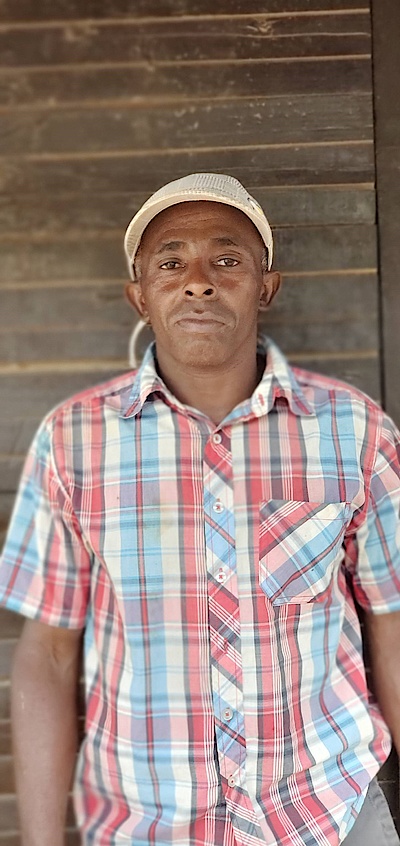
« Today, through this project, we have the know-how on the seed germination technique from our own seeds. The training helped us a lot and we can now provide seedlings to our brothers and sisters in the Association who would like to plant Ylang ylang.
In fact, this know-how is not only useful for Ylang ylang seeds but also for any other seeds that we want to germinate and plant on the fields - we are now able to do that. »
Jeannot BINA - President of the Association ASYMA
